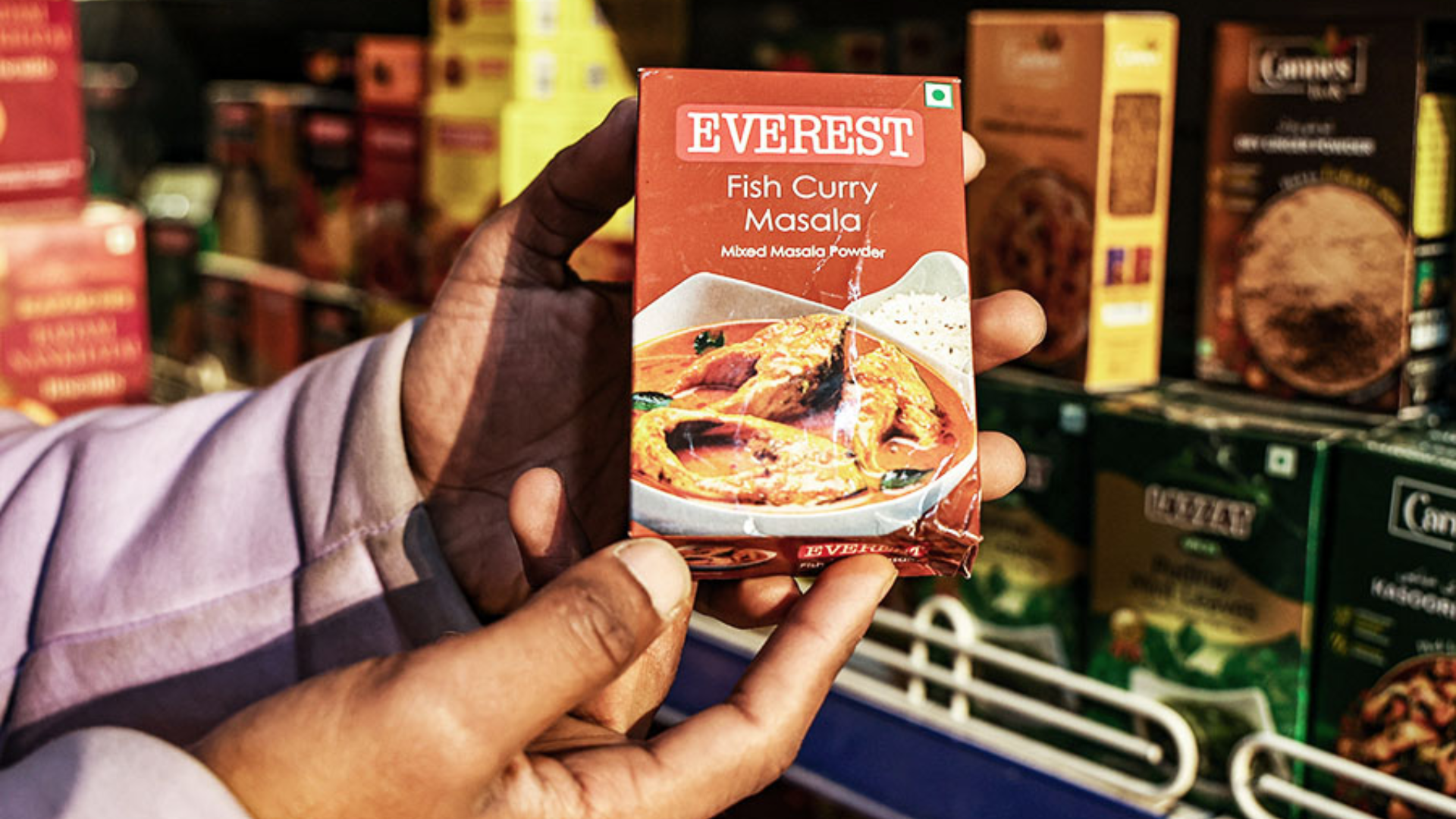Nepal’s Department of Food Technology and Quality Control has imposed a ban on the import, consumption, and sale of two prominent Indian spice brands, Everest and MDH. This action follows the discovery of elevated levels of ethylene oxide, a potentially harmful chemical, in their products. The ban was confirmed by Mohan Krishna Maharjan, the department’s spokesperson, during a phone conversation with ANI.
Maharjan explained, “The import of Everest and MDH brand spices has been prohibited in Nepal. This decision was made following reports of harmful chemical traces in these spices. The ban on import was imposed a week ago, and we have also halted their sales in the market.” He further noted that ongoing tests are being conducted to determine the levels of ethylene oxide in these specific brands. The ban will remain effective until the final test results are available. Maharjan also mentioned that this move aligns with similar actions taken by Hong Kong and Singapore.
In response to the situation, Indian government sources told media that the use of ethylene oxide (EtO) is regulated in various countries, with permissible limits ranging from 0.73% to 7%. These sources emphasized the need for a standardized regulation for EtO use globally. They also highlighted that the spices banned in these countries represent less than 1% of India’s total spice exports.
To address the issue, the Spice Board of India has implemented several measures to ensure the safety and quality of Indian spice exports. The board has adopted recommendations from the Techno-Scientific Committee, which conducted a thorough root cause analysis. This included inspecting processing facilities and collecting samples for testing in accredited laboratories.
READ MORE : Delhi Police Intensify Search In AAP MP Swati Maliwal’s Assault Case
Furthermore, the Spice Board of India organized a stakeholder consultation with over 130 exporters and associations, such as the All India Spices Exporters Forum and the Indian Spice and Foodstuff Exporters’ Association. The board issued guidelines for EtO treatment to all exporters to prevent contamination in spices destined for international markets.
This action by Nepal comes in the wake of similar bans imposed by Hong Kong. In April, the Hong Kong food safety watchdog banned four spice products from MDH and Everest after detecting cancer-causing ethylene oxide. The Centre for Food Safety of the Government of Hong Kong Special Administrative Region announced on April 5 that routine surveillance programs had revealed the presence of ethylene oxide in MDH’s Sambhar Masala Powder and Curry Powder.
The steps taken by Nepal and other regions highlight the ongoing concerns over food safety and the presence of hazardous chemicals in widely consumed products. As testing continues, the outcomes will determine the future availability of these popular spice brands in Nepal and possibly other regions.



















